In June 2019, Transport Canada announced the final guideline for ELD Canada requirements, which applies to commercial trucking fleets based in Canada. According to the mandate, commercial motor vehicle drivers are required to keep a duty status record, which must be migrated to electronic logging devices (ELDs).
As of today, it’s important to note that Canadian truckers were required to comply with the Electronic Logging Device (ELD) requirements as confirmed by the Minister of Transport on March 2, 2021. This mandate was effective since then and still applies to all truckers operating within Canada.
The ELD mandate has already been implemented since June 12, 2021. It’s now more crucial than ever to ensure your commercial vehicle fleet is running efficiently, as compliance with these new regulations is mandatory.
Effective Jan. 1, 2023, truck carriers operating in Canada must use electronic logging devices (ELDs) certified by Transport Canada, as the country’s grace period allowing the transition from paper to electronic logs has ended.
Drivers operating Canadian or American trucks in Canada must use devices from the country’s certified list of ELDs if they wish to avoid receiving citations, according to a press release from the Commercial Vehicle Safety Alliance (CVSA).
However, each Canadian province and territory has its own regulations for applying the ELD mandate, so CVSA recommends drivers and carriers check ahead for ELD requirements in any areas they might travel. The mandate will not be enacted in Quebec until June 1 due to administrative delays.
Innovation and Technology in the Transport Industry
Unfortunately, the trucking industry in Canada has been slow with innovation and technological breakthroughs.
For a long time, the Canadian transportation industry was hooked onto the manual pencil and paper logging of driving hours as required by the government. However, this manual way of tracking did not help reduce fatigue-related accidents as expected.
As a result, the ELD mandate was introduced to improve safety measures. An electronic logging device, also known as the ELD, is a unit used to collect and process a driver’s hours of service (HOS) automatically by connecting it directly to the car’s engine control module (ECM).
Not all ELDs certified in America will meet Canadian technical and HOS requirements. The Canadian Council of Motor Transport Administrators has published a Canadian ELD Technical Standard FAQ.
Current ELDs will require a software update to meet certification requirements. While in the U.S., ELDs are self-certified by the manufacturer, ELDs in Canada are certified by three independent certifying bodies, then recertified annually.
Approximately 60 ELDs are certified in Canada.
The Canadian ELD mandate shares similarities with the regulation in the United States.
What Is the Canadian ELD Mandate?
Canada’s electronic logging device mandate is a significantly updated law that concerns onboard recording devices and their use. Even though some benefit from automatic onboard recording devices, the ELD Canada mandate takes it to a higher level.
This data is needed for hours of service compliance, and the Canada ELD mandate clarifies how to provide the collected data in a standardized format. The ELD also allows transmitting information to law enforcement, such as the record of duty status graphically displayed on an ELD.
Canadian ELD And Details of Hours of Service
In Canada, the ELD mandate would force truckers who meet the hours of service (HOS) requirements to switch from paper logbooks to electronic logging devices.
Presently, in Canada, the HOS laws restrict drivers to 13 consecutive driving hours, up to 14 hours combined driving and on-duty time, and a 16-hour elapsed time in a work shift day.
They must have a minimum of 8 consecutive off-duty hours.
The regulations for hours of service (HOS) in Canada and the U.S. are similar, but some differences exist. Specifically, Canadian HOS requirements are more robust than those in the U.S.
Despite the new electronic logging device (ELD) mandate in Canada, the existing HOS regulations will not be changed. Instead, the ELD mandate will help improve compliance with the already-established HOS laws by making it easier to track driver hours.
Canada published a draft version of its ELD mandate in December 2017, the requirement to log hours of service (HOS) electronically coming into force on June 12, 2021.
However, from June 2021 until Jan. 1, 2023, the mandate was supported with soft enforcement, meaning that ELDs were required, but the government would not issue citations for violations. This was to allow carriers more time to install certified ELDs—of which there were none as of June 2021.
Canadian Minister of Transportation Omar Alghabra said that soft enforcement measures would “consist of education and awareness.”
Why Is It Implemented?
First and foremost, the mandate is intended to make the trucking and transportation industry safer.
Driver Safety
The ELD Canada mandate will force drivers to get enough rest each day. As a result, drivers are more alert as the ELD does all of the tracking and logging.
And the driver will also have more personal free time while not driving. This means no more trying to stay awake to fill out the logbook.
HOS Inspection
Another reason for the ELD mandate is for inspections.
The ELD shows an extensive record of duty status. These pieces of information are accurately and quickly conveyed to a roadside or two-way scale inspection.
This ELD Canada mandate has been proven to save more time for both carriers and drivers.
In theory, a logistics transportation company, a fleet of trucks, or even individual drivers, will benefit significantly from the ELD mandate.
Record-Keeping
The ELD Canada mandate allows for precise and thorough record-keeping for safety, technical and security specifications. Anyone required to keep records of duty status is necessary to comply with the Canadian ELD mandate.
Besides all that, the Canada ELD rules will continually update shipping and transportation regulations. This would be done regarding new emerging technology to help the transportation industry. Therefore, the fleet company will get seamless future investments in onboard technology.
When Will the Mandate Take Effect?
As of December 16, 2017, the Canadian Government released draft regulations that amended the Hours of Service Regulations for Commercial Vehicle Drivers to include Electronic Logging Devices (ELDs) and other changes. These regulations were published in the Canada Gazette Part I: Vol. 151, No. 50.
Fast forward to June 13, 2019, and Transport Canada announced that commercial truck and bus operators are now required to use ELDs.
Now, from Jan. 1, 2023, all truck carriers that are operating in Canada must use certified electronic logging devices (ELDs). Carriers are required to move away from paper daily logs and switch to ELDs.
After extensive consultation with industry leaders, Canadian ELD providers, as well as state and territory governments, this highly anticipated announcement has finally been made.
Is There Any Grandfather Clause?
Transport Canada has recently announced changes to the ELD regulations, stating that the two-year grandfather period for ERDs will no longer be in effect. This means that fleets who are currently using e-logs will not have any additional time to comply with the mandate and will need to ensure that their systems are fully compliant by 2021, just like everyone else.
The good news is that the updating process has been found to be less burdensome than initially anticipated. Carriers will now be able to upgrade their current devices through over-the-air software updates, rather than having to obtain new ELD units. Carriers with ERDs can consult with their current Canadian ELD providers to confirm the upgrade specifications.
It’s worth noting that the sooner your company adopts the use of an ELD, the sooner you can reap the benefits of your investment, such as reducing driver paperwork time, increasing safety, and enhancing your fleet operations. So don’t delay in making the switch!
Exception
Exemptions from the Electronic Logging Device (ELD) mandate in Canada include:
- Statutory Exemption: Certain vehicles with a statutory exemption.
- Authorized Permit: Vehicles operating under a specific authorized permit.
- Pre-2000 Vehicles: Vehicles manufactured before the year 2000.
- Short-Term Leases: Vehicles under lease for less than 30 days.
- Short-Haul Operations: Truckers within a 160km range of their home terminal.
Additional Exemptions for Paper Logs:
Allowed if:
- Running logs 8 days or less in any 30-day period.
- Driveaway-towaway drivers.
- Operating a rig older than 2000.
- Running short-haul with a 100 or 150 air mile radius.
- Engaging in certain agricultural, oilfield, or concrete mixer operations.
How Does It Affect Canada?
The Canada ELD mandate is expected to impact an estimated 3 million drivers.
The implementation of the ELD already went into effect on December 18, 2017.
And enforcement authorities will take Commercial Motor Vehicles (CMVs) out of service if they do not comply with ELD.
The Canadian ELD has undergone development and is being introduced in phases, just like in the U.S.
This will ensure that there is a smooth transition in ensuring cross-border regulations and enforcement are kept consistent.
Statistically, 30,000 trucks are traveling between Canada and the USA per day, and over $650 billion in goods cross the US-Canada border yearly.
Therefore, this milestone will impact the truck market in Canada positively.
And also sustain a steady and smooth flow of productivity between the U.S. and Canada.
What Are the Benefits of Implementing the ELD Mandate in Canada?
From the horse’s mouth, the Canadian Transport Minister, Marc Garneau, stated that the mandate would make Canadian roads safer.
He also acknowledged that the Canadian Trucking Alliance had been pointing to research about an ELD mandate.
It would directly impact reducing behaviors linked with high crash rates, such as driving over prescribed limits of service, which potentially causes fatigue.
Third-Parties Certification
Different from the U.S., Canada’s ELD would require third-party certification before it can enter the market.
The goal is to standardize the certification requirements in order to restrict the number of Canadian eld providers. And as a result, eliminate the circulation of non-compliant ELD products.
This extra layer of approval will trigger an initial delay; however, the bottom line is that Canadian fleets would be confident that they are accredited and compliant with the ELD they end up using.
How It Affect Cross-Border Truck Drivers
How exactly the Canada ELD mandate will affect cross-border truck drivers isn’t clear presently;
Especially, truckers clocking half a day in the U.S before completing a shift in Canada or vice versa.
However, it will undoubtedly be accounted for in the Canadian eld mandate.
Some ELDs, such as Samsara, have border check options that enable truck drivers to preview hours before crossing the borderline in the other country’s ruleset.
And this will make drivers feel more in control of their enforcement and give them insight into how their hours in the two countries are accounted for.
And also enable them to know if there is a compliant violation problem before crossing.
Which Are the Best ELD Suppliers in Canada?
The following are some of the best eld Canada providers for Canadian fleet companies.
1. Motive (formerly keepTruckin) ELD Device
Forbes named Motive (formerly KeepTruckin) ELD among the top 100 Cloud Companies in 2018 for top-notch driving innovation.
You can rely on products made by this company as they are FMCSA certified.
Their cheap ELD devices provide you with the simplest, most affordable way to become compliant with state laws.
Device Overview
The Motive (formerlyKeepTruckin) electronic logging device offers monthly pricing, which is similar to most ELD units on the market.
It features fuel monitoring and geofencing to allow you to remain safe on the road.
There is no upfront cost; these cheap ELD devices offer you monthly installments of just $25.
This must be paid to them over a contracted period of 3 years.
You can take a look at our Motive (formerly keepTruckin) ELD reviews to know more about the solution.
2. Omnitracs ELD
Available for $799, or if you prefer paying for it through monthly installments, then $30 per month.
Omnitracs IVG, which stands for Intelligent Vehicle Gateway, is the leading ELD device in the market so far.
It’s super easy to install; there isn’t any hassle of having to connect a million cables to a million more.
It’s simple and yet gets the job done the best: just one device and one cable solution.
We provide you with the Omnitracs reviews to see the features and how they will best serve your fleet company’s needs.
Buy it HERE!
3. Geotab ELD Device
Geotab also has a Canadian set of rules implemented for the Geotab ELD solution.
The company is committed to operating as per the latest Canadian ELD guidelines towards meeting regulatory requirements.
For more information on Geotab’s electronic logging solution, please visit geotab.com/eld
The GO9 allows you to lead your fleet into the future with expanded capacity for further native vehicle support.
The system improved fuel usage, support electric vehicles, and global expansion.
Geotab has everything you need to meet regulations for electronic logging devices (ELDs) and more.
See how the Geotab Drive solution can help your fleet stay ahead of the curve in our Geotab Drive reviews.
4. Isaac Instruments ELD
It develops and produces technical solutions to enhance performance, efficiency, compliance, and safety for fleets of all sizes.
It converts complex data into useful metrics through its automated telemetry system.
As a result, trucking companies will make effective choices with the ongoing monitoring of both drivers’ and vehicles’ performance.
In order to enhance operating costs and increase revenues, ISAAC’s advanced mobile communication technology offers real-time interaction between drivers and fleet staff members.
When selecting an activity such as loading or DVIR, the electronic logbook displays the corresponding hours of service status.
This device is a reliable, hassle-free solution for your drivers.
During roadside inspections, drivers can immediately display information from the last 8/14 days on the tablet.
Because it is wireless, the tablet can be used outside the truck to show inspecting officers reports.
Therefore, it keeps roadside inspections hassle-free and straightforward.
5. Samsara
Samsara ELD device is a new entrant into the ELD market when compared with Garmin and Rand Mcnally ELDs.
However, according to drivers and owner-operators, Samara ELD Device review is by far one of the best ELD (Electronic Logging Devices) out there.
Samsara has you covered when you’re a Canadian fleet searching for an ELD solution prior to the legislation’s mandatory date.
And this tested and proven ELD solution, which also provides Hours of Service automated cross-border compliance, is used by fleets throughout Canada;
And therefore, comply with the Canadian ELD mandate until the official date of implementation.
The ELD is purpose-built and is part of an integrated platform including GPS monitoring, dispatch, dash cams, and more for enforcement and connected operations.
If you’re interested in knowing more about Samsara solutions, click here to read our Samsara ELD reviews for more information.
Device Overview
This ELD device is considered one of the most versatile electronic logging devices available on the market right now.
Basically, it is the ultra-cool new kid who just moved in on the corner, and he has all the latest cool stuff that all the other neighborhood kids want.
Conclusion
With the ELD Canada final compliance date now past, ELD technologies accredited in Canada are required for carriers and drivers operating in Canada.
During inspections, a commercial truck ELD can help give drivers comfort, minimize downtime and the risk of citations.
These violations could also cost the company lot of money and even cause them to suspend operations.
Therefore, any audits and inspections can be handled efficiently, easily, and with minimal stress by using ELDs to automate data collection and reporting. An ELD solution will make sure you stay compliant in your fleet business as it helps improve efficiency.
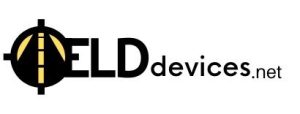




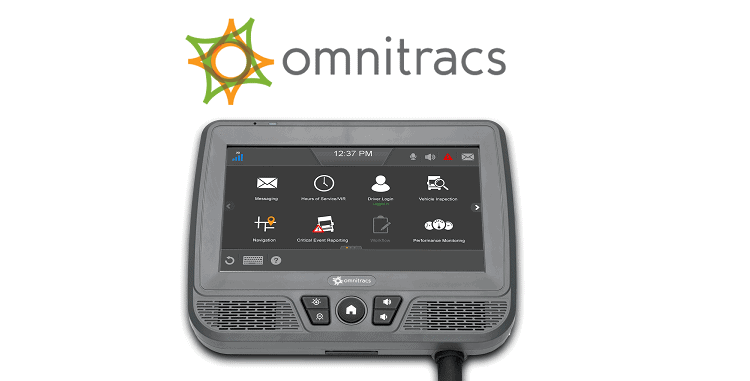


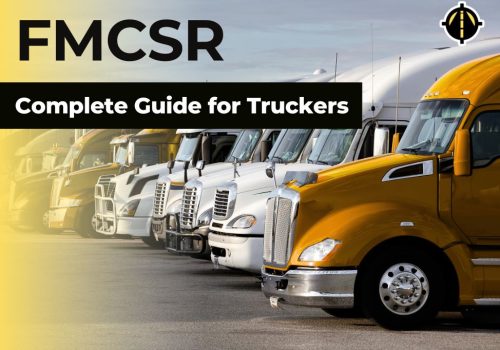
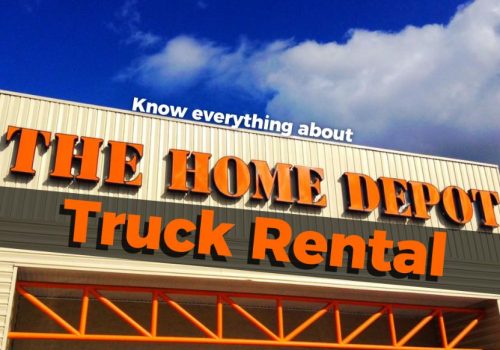

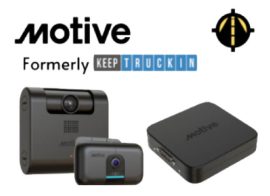
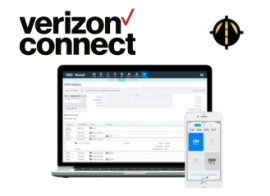


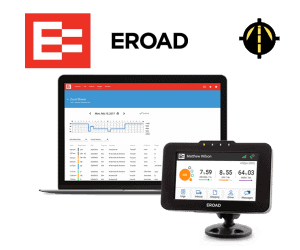
 Answer 5 simple questions to request a
Answer 5 simple questions to request a
6 Responses
Hello:
My company is demanding I put an app on my personal phone which, in addition to HOS stuff, also includes all the billing for the company. I don’t trust third party apps and don’t want them on my personal device. Any idea if this demand is legal or not? I’ve searched all over the web but nobody talks about this issue.
Thanks for any help.
Hi Gordon,
From our understanding the answer to your question may depend on various things such your particular state laws and your employment contract. The reason that you may be coming up short on your search is because there are no Federal laws addressing this. That’s why some states have addressed it. You should check the laws regarding your state but I believe that in CA, CT, DE, and TX companies cannot force work apps onto personal phones without your consent. So if they ask you and you don’t want it, you don’t have to comply. If that’s your case, and you don’t want to make to much of a stir, get a cheap personal phone that you will only use for work. I say this because some states (CA, IL, IA, MA, MN, NH, NY, PA, DC) require reimbursement for costs of using their personal phone for work purposes. These laws are subject to change so it’s best to check with your state’s labor department for most up to date and accurate info. Good luck!!!
Question, What are the e-log requirements for a fleet company that is picking up a new tractor to transport back to their home province?
Hi there,
As a Canadian fleet company transporting a new tractor, you’ll need to use an electronic logging device (ELD) that meets the requirements set by the federal government and the Canadian Council of Motor Transport Administrators (CCMTA).
Your ELD must be:
Compliant with the CCMTA’s technical standards.
Certified by a recognized third-party certifier.
Installed in the vehicle and connected to the engine or another data source.
Used by drivers for logging in and out.
Able to record all driving hours and transfer data to enforcement officers upon request.
Able to store data for at least 6 months.
Ensure that your ELDs meet these requirements to avoid penalties for non-compliance.
Best regards,
Robert
Hi, if the driver only goes outside the 160km limit from home office once in a while, say a moving company doing moving for a customer. Would he require the ELD?
Thanks!
Eddie
If a driver is only occasionally going outside the 160 km radius from their home office, they may not be required to use an electronic logging device (ELD). The Federal Motor Carrier Safety Administration (FMCSA) requires that commercial motor vehicle (CMV) drivers use ELDs if they are required to maintain records of duty status (RODS) and if they are operating a CMV that is used to transport passengers or property in interstate commerce and that is subject to the hours of service (HOS) regulations.
There are some exceptions to the ELD rule. Drivers who only operate within a 100 air-mile radius of their normal work reporting location and who complete their HOS documentation on paper are not required to use ELDs. Drivers who are subject to the HOS regulations but who are not required to maintain RODS (e.g., drivers of certain vehicles that are not used in interstate commerce) are also not required to use ELDs.
It is important to note that the ELD rule applies to CMVs and not to drivers. If a driver operates a CMV that is required to use an ELD, then the driver must use an ELD, regardless of how frequently they go outside the 160 km radius from their home office.
If you have any additional questions about the ELD rule or about the requirements for CMV drivers, you may want to contact the FMCSA or a transportation industry professional for further guidance.
Robert.